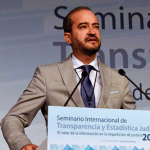Article 1. Section 1. Legal form
The organization is founded on the 5th of August 2019 as a legal entity, more specifically as an international non-profit organization (hereafter “INPO”) following the Code on Companies and Associations.Article 1. Section 2. Name
1. The INPO carries the name “Dyntra”.
2. This name should figure in all deeds, invoices, announcements, publications, letters, orders and other documents by the organization, and should immediately be preceded or followed by the words “international non profit organization” or by its abbreviation “INPO”, as well as the exact designation of the seat of the organization.Article 1. Section 3. Registered office
1. The registered office of the INPO is located at the Brussels Capital Region.
2. The Executive Board has the competence to move the seat to any place within the Dutch-speaking region. At the following meeting of the General Assembly, the General Assembly shall confirm the transfer of registered office.Article 2. Purposes and objectsPurposes
The INPO pursues the following purposes:
1. Promotion of Transparency in the area of municipal, regional and central government; in the different Public Administrations and in the rest of the civil society as a transforming value of society.
2. The promotion of the values and principles of open government at all institutional levels of the State, public and private organizations, international organizations, and the third sector.
3. Generation of a solid democratic framework based on the values of Open Government.
4. Generation of a solid sociopolitical framework for the development and implementation of a true, participatory democracy through the promotion and protection of the right of every person to participate in public affairs
5. The fight against corruption, through the generation of solid structures that prevent corruption, in all public spheres of society and at all levels.For the best fulfillment of its purposes, the INPO can perform all those tasks subordinate or accessory to the main activity, as well as exercise the economic activities necessary for the fulfillment of the purposes. And, in a generic way, carry out as many actions as are conducive to the best achievement of such purposes.Activities
In order to achieve the purposes, the INPO will carry out the following activities:
1. Assessing levels of implementation of open government and public accountability of governments, public authorities, political parties, elected representatives and social actors in a dynamic, efficient, transparent and open manner.
2. The empowerment of citizens and social actors through open government tools and social auditing, allowing the control and oversight of governments and public administrations.
3. Innovation and the development of social technologies that allow and generate channels of transparency, participation and collaboration among organizations, civil society and citizens.
4. The promotion and promotion of knowledge and research around open government, through studies, publications, conferences and events that allow a wide dissemination and disclosure of the Open Government philosophy.
5. Education, training and support for various social agents to generate value and empowering that will allow them to develop awareness and control of their activities aimed at creating a participatory, equitable and just society.
6. The generation of methodologies that allow the transformation of organizations towards an Open Government model efficiently.Article 3. Membership
Article 3. Section 1. Ordinary Members
1. There are at least two Ordinary Members having all rights “Members” have according to the Code of Companies and Associations.
2. Following founders are the first Ordinary Members:
i. Mister GOMEZ ROA Juan Manuel, born at Cordoba on 23 December 1970, residing at Calle Pepita Barrientos, 7 Oficina 320, Malaga (Spain);
ii. Miss GOMEZ RUIZ Ana Gloria, born at Cordoba on 29 May 1991, residing at Calle Cerojo 28, E.2 1°B, Malaga (Spain); and
iii. Mister DE GRAVE Erwin Hubert, born at Deinze on 25 February 1971, residing at Pinos de Alhaurin, C/ Alhaurin el Grande 1, 29130 Alhaurin de la Torre (Spain).
3. Organizations can put themselves up for Ordinary Membership, provided that they have an integrity from diverse geographical, cultural and professional backgrounds, that acknowledge the Statutes of the INPO and are committed to the active promotion and realisation of its goals.
Exceptions can be decided upon by the Executive Board under well considered circumstances.
4. The candidate members address their request for membership to the Secretariat.
5. The Executive Board will decide whether or not to accept the candidate as Ordinary Member on its following meeting. The decision will be taken by an ordinary majority of the members of the Executive Board.
6. The Executive Board has the discretion to decide that a certain candidate will not be accepted as an Ordinary Member.
7. Ordinary Members have all rights and obligations that are mentioned in the Code of Companies and Associations and that are written down in the articles of association. They pay a membership fee that will be fixed annually by General Assembly.
Article 3. Section 2. Extraordinary Members
1. Every natural or legal person or organization that supports the work of the INPO with regular sponsoring can send a written application to the INPO in order to become an Extraordinary Member.
2. The Executive Board will decide in a discretionary manner and without further motivation whether or not a candidate will be accepted as an Extraordinary Member.
3. Extraordinary Members have only the rights and duties as described in the articles of association.
4. Extraordinary Members have no voting rights.
Article 3. Section 3. Resignation
1. Ordinary Members can withdraw at the end of each financial year from the INPO by addressing a formal writing to the Executive Board. The resignation will take effect one month after this notice.
2. Extraordinary Members can withdraw at any moment from the INPO by means of a written notification. The resignation will take effect six months after this notice.
Article 3. Section 4. Exclusion
1. Whenever an Ordinary Member opposes in a serious manner the objectives of the INPO, opposes agreements that have been made according to the articles of association or does not pay its membership fee despite a written request and after 6 months lapse in fees, either the Executive Board or at least 1/5 of all Ordinary Members can request for the termination of its membership. The exclusion of an Ordinary Member requires a special resolution by the General Assembly, carrying the votes of a 2/3 majority of the Ordinary Members present or represented, with at least half of all Ordinary Members present or represented.
2. The Ordinary Member, whose membership’s termination is requested for, has the right to appeal to the General Assembly in writing.
3. Extraordinary Members that oppose in a serious manner the objectives of the INPO, oppose agreements that have been made according to the articles of association or do not pay their membership fee despite a written request and after 6 months lapse in fees, can be excluded from membership by a discretionary resolution of the Executive Board.
Article 3. Section 5. Rights
No Member can utter or execute a claim on the assets of the INPO on the sole basis of his membership.
1. The exclusion of rights on the INPO’s assets is imperative at all times: for the duration of the membership, on the termination of the membership for which reason whatsoever, on dissolving the INPO, etc.
2. Extraordinary Members have the right to participate in meetings of the General Assembly.
Article 4. The General Assembly
Article 4. Section 1. The General Assembly
1. The General Assembly consists of all Ordinary Members. Each Ordinary Member which is not a physical person should, in order to exercise its rights as a Member, appoint a duly authorised delegate.
2. All Ordinary Members have equal voting rights. Every Ordinary Member has one vote.
Article 4. Section 2. Auditors
Auditors can be present at the General Assembly and can address the General Assembly, when granted to do so by the President.
Article 4. Section 3. Observers
The Executive Board can invite experts as observers to the meetings of the General Assembly.
Article 4. Section 4. Powers
The following exclusive powers can be exercised solely by the General Assembly:
1. the modification of the articles;
2. the election of the President, the Vice-President and Members of the Executive Board;
3. the nomination and withdrawal of the auditor and the fixation of his fee;
4. the discharge of the Members of the Executive Board;
5. the approval of the budget and the accounts;
6. the decisions on terms and conditions for reimbursement of expenses and compensation of working time for the Members of the Executive Board;
7. the approval of the report from the auditor;
8. the dissolution and liquidation of the organization;
9. the exclusion of an Ordinary Member;
10. the decision on the amount of the membership fees;
11. the decision on the organizational structures and processes;
Article 4. Section 5. Meetings
1. The meetings of the Ordinary General Assembly are held at least annually. The invitation hereto is sent in writing to all Ordinary Members at least four weeks prior to the date the General Assembly will be held.
2. The meetings are called by the President of the Executive Board. A draft of agenda will be attached to the invitation. Any item put forward by an Ordinary Member at least 10 days prior to the meeting will be put on the agenda.
3. Extraordinary meetings of the General Assembly can be called by the Executive Board or on request of at least 1/5 of the Ordinary Members. The invitation will be sent to all Ordinary Members at least eight weeks prior to the date of the General Assembly.
Article 4. Section 6. Quorum and voting
1. Decisions are made by ordinary majority of the votes of the Members present or represented, except when the Code on Companies and Associations or the articles of association prescribe otherwise.
2. The modification of the articles of association requires a deliberation by a meeting that holds a quorum of 2/3 of the Ordinary Members present. In the event that the first meeting carries less than 2/3 of the members present of represented, a second meeting can be called. This second meeting can deliberate, take decisions and make amendments in a valid way when the majorities as stated hereafter are respected. This is the case regardless of the number of members present or represented. The second meeting cannot be held less than 15 days following the first meeting. The decision is taken from the moment that it is accepted by 2/3 of the votes of the Ordinary Members present or represented. Only in the event that the amendment of the articles of association concerns the purpose or the purposes the organization is founded for, this amendment will require a majority of 4/5 of the votes of the Ordinary Members present or represented.
3. Members who cannot be present at a meeting, can be represented by other Members. Every Member can carry a maximum of two proxies.
4. The voting can proceed by way of call (out), raise of hands or, when requested by at least one Ordinary Member present, by way of secret ballot.
5. In the event no majority can be reached the proposal will be considered to be rejected.
6. In exceptional circumstances, when the urgent necessity and the interest of the INPO require such, the decisions of the General Assembly can be taken by unanimous written consent of the Ordinary Members. To this end it is required that the Ordinary Members come to an unanimous agreement on proceeding by way of written decision-making. Written decision-making supposes in any case that a deliberation per e-mail, video or phone conference took place.
7. Minutes will be drawn up and signed by the minute taker and the President after being accepted by the General Assembly. Minutes are kept in a register of minutes and can be looked into by the Ordinary Members.
Article 5. Governance and representation
Article 5. Section 1. Composition of the Executive Board
1. The INPO will be governed by an Executive Board composed of the President and at least two members which are all Ordinary Members or duly authorised delegates of an Ordinary Member of the INPO.
2. The President and the members of the Executive Board are elected for a term of three years by the General Assembly, by ordinary majority of the Members present or represented. Their mission ends with the closure of the annual meeting following their term of service. Directors are eligible for reappointment.
3. The President and the members of the Executive Board can be removed at all times by the General Assembly. The General Assembly decides on this matter by ordinary majority of the Members present or represented. Every member of the Executive Board can resign after written notification to the Executive Board. A Director is obliged to continue his function after his resignation is handed in until he can reasonably be replaced.
4. As a principle the members of the Executive Board are not remunerated unless the General Assembly takes another decision by normal majority. The costs they occur in the course of the exercise of their mandate will be compensated.
Article 5. Section 2. Executive Board: meetings, deliberations and decisions
1. The President calls the meetings for the Executive Board whenever the interest of the INPO requires such.
2. The Executive Board is presided by the President, or, in his/her absence, by the Vice-President.
3. The Executive Board can only deliberate and decide in a valid way, when at least a majority of its members are present at the meeting. The decisions are taken by ordinary majority of the members present. When no majority can be reached the President will decide.
4. Minutes are drawn up and signed by the President and minute taker and kept in a register of minutes and can be looked into by the Ordinary Members.
5. In exceptional circumstances, when the urgent necessity and the interest of the INPO require such, the decisions of the Executive Board can be taken by unanimous written consent of the Directors. To this end it is required that the Directors come to an unanimous agreement on proceeding by way of written decision making. Written decision making supposes in any case that a deliberation per e-mail, video or phone conference took place.
Article 5. Section 3. Conflict of interest
1. In the event a Director has, directly or indirectly, an interest of pecuniary nature in conflict with a decision or an activity of the Executive Board, he/she has to make mention of this interest to the other Directors before the Executive Board takes a decision.
2. The Director having a conflicting interest withdraws from the meeting and refrains from the deliberation and the ballot concerning the matter he has an interest in.
3. The procedure mentioned above is not applicable to current transactions under the conditions and against the guaranties common on the market for similar transactions.
Article 5. Section 4. Internal governance – Restrictions
1. The Executive Board is qualified to take all decisions that are necessary or useful for the realisation of the purpose of the INPO. Amongst other things, the Executive Board is qualified to:
• Prepare the policy and recommendations for the General Assembly
• Execute the policy and decisions of the General Assembly
• Implement the budget
• Prepare and present international PR activities
• Prepare the organizational structures and processes
• Prepare the contract to define role, tasks, budget, etc. of the Secretariat
• Prepare the rules for payment of expenses and compensation of the members of the Executive Board
• Ensure a successor in the case of premature withdrawal of a Director for the rest of the election period
• Issue and modify Internal Rules
2. The Executive Board can delegate a part of its managerial powers to one or more third parties who may not be Directors. This delegation of power cannot however concern the general management of the INPO nor the general powers of the Executive Board.
3. The members of the Executive Board cannot take decisions without the approval of the General Assembly concerning purchase or sale of properties of the INPO and/or the taking out of a mortgage. These restrictions of powers cannot bind third parties, not even when made public. Acts in breach of these internal restrictions entail the internal liability of all Directors concerned.
Article 5. Section 5. External representation
1. The Executive Board represents the INPO as a board in every transaction it makes in and out of Court. It represents the organization by the majority of its members.
2. Notwithstanding the general representative power of the Executive Board as a board, the INPO can also be represented by the President or the Vice-President of the Executive Board acting alone.
3. The Executive Board or the President that represent the INPO can designate authorized agents of the INPO, acting by proxy. Only exceptional and limited powers for specific or a series of specific legal actions are permitted. The authorized agents bind the INPO within the scope of their mandate, the limitations of which do bind third parties in accordance with the rules of agency.
Article 5. Section 6. Publication requirements
The nomination of the members of the Executive Board and of the persons authorized to represent the INPO and the termination of their function must be made public by means of deposit in the organization’s file at the registry of the court of enterprises, and by means of an extract of which is to be published in the Annexes to the Belgian State Gazette. From these documents it should in any case be clear whether the persons that represent the INPO, bind the INPO either each separately, collectively, or as a board as well as the scope of their powers.
Article 6. Daily management
1. The Executive Board can assign the daily management as well as the representation within the boundaries of this management to one or more directors.
2. The persons in charge of the daily management cannot take decisions or legal actions concerning the representation of the INPO within the scope of the daily management of transactions that exceed the value of € 2.500,- without the approval of the Executive Board. These restrictions of powers cannot bind third parties, not even when made public. Acts in breach of these internal restrictions entail the internal liability of all persons concerned.
3. The nomination of those persons empowered with the daily management and the termination of their function are made public by means of deposit in the organization’s file at the registry of the court of enterprises, and by means of an extract of which is to be published in the Annexes to the Belgian State Gazette. From these documents it should in any case be clear whether the persons that represent the INPO in matters of daily management bind the INPO either each separately, collectively, or as a board as well as the scope of their powers.
Article 7. Liability of the members of the Executive Board and the Daily Management
1. The Directors and the persons empowered for the daily management are not personally liable for the obligations of the INPO.
2. Toward the INPO and towards third parties, their liability is limited to the accomplishment of their duties in accordance with common law, the legal provisions and the provisions in the articles of association. They are liable for the shortcomings in their (daily) management.
Article 8. Control by an auditor
1. The designation of an auditor is not mandatory, as long as the INPO does not exceed the conditions of article 3:98 juncto 3:47 of the Code on Companies and Associations.
2. As soon as the INPO exceeds these threshold amounts, an auditor is charged with the control of the financial situation, of the balance sheet and of the regularity of the transactions. This auditor is nominated by the General Assembly out of the members of the Institution for Company Revisers for a period of three years. The General Assembly determines the fee of the auditor.
Article 9. Financing and accountancy
Article 9. Section 1. Financing
1. The organization will be financed by ways of:
• membership fees
• subsidies, allowances, gifts, contributions, donations, legacies and other provisions made in last wills and testaments, given for the general purposes of the organization as well as for the support of a specific project.
2. The organization can also collect funding by all other means that are not in violation with the legal requirements
Article 9. Section 2. Accountancy
1 The financial year starts 1 January and ends 31 December.
2 The accounts shall be kept in accordance with the provisions of the Code on Companies and Associations and the implementation decrees.
3 The balance sheet is deposited in the organization’s file at the registry of the court of enterprises in accordance with the relevant provisions of article 3:47 of the Code of Companies and Associations.
4 The Executive Board deposits the balance sheet of the previous financial year as well as a model budget for approval at the General Assembly.
Article 10. Dissolution
1. The General Assembly is called to discuss the proposals concerning the dissolution of the organization by the Executive Board or by at least 1/5 of all Ordinary Members. The notification and the agenda are made in accordance with the relevant provisions of article 4, section 5 of these articles of association.
2. The deliberation and decision-making concerning the dissolution respects the quorum and the majority of the modification of the purpose put forward in article 4, section 6 of these articles of association. As soon as the decision to dissolve the INPO is taken, the organization will always mention that she is a “INPO in dissolution”.
3. In the event that the proposal concerning the dissolution of the organization is accepted, the General Assembly will designate one or more liquidators. The General Assembly will describe their mission.
4. In the event of the dissolution and liquidation of the organization, the Extraordinary General Assembly will decide upon the destination of the assets of the INPO. These assets must be designated to another non-profit organization with a similar or connected purpose.
5. All decisions concerning the dissolution, the liquidation requirements, the nomination and the termination of office of the liquidators, the closure of the liquidation and the destination of the assets of the organization will be deposited at the registry and published in the Annexes of the Belgian State Gazette.








